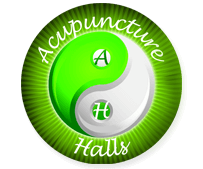
Photo credit to freepik.com
Post-surgical hiccoughs, or persistent hiccups following surgery, can be an unexpected and frustrating complication. While most cases of hiccoughs are benign and self-limiting, post-surgical hiccoughs may persist, causing discomfort, impaired healing, and disruption to normal recovery processes. Conventional treatments range from pharmacological interventions to behavioral techniques, but acupuncture is gaining recognition as a viable alternative. This article explores the potential of acupuncture as a therapeutic modality for managing post-surgical hiccoughs.
Understanding Post-Surgical Hiccoughs
Hiccoughs (or hiccups) occur due to involuntary contractions of the diaphragm, followed by sudden closure of the vocal cords, producing the characteristic “hic” sound. Post-surgical hiccoughs may arise from several factors:
- Irritation of the phrenic nerve or diaphragm during surgical procedures.
- Anesthetic agents causing diaphragmatic spasms.
- Post-operative medications, including opioids and corticosteroids.
- Gastrointestinal disturbances, such as bloating or acid reflux.
- Stress and anxiety linked to surgery and recovery.
While occasional hiccups are harmless, persistent hiccoughs can lead to complications, such as sleep disturbances, fatigue, wound dehiscence, and reduced quality of life.
Acupuncture: An Overview
Acupuncture is a traditional Chinese medicine (TCM) practice involving the insertion of thin needles into specific points on the body, known as acupoints. These points are thought to regulate the flow of “Qi” (vital energy) and restore balance within the body. In Western medicine, acupuncture is believed to stimulate the nervous system, promote the release of neurotransmitters, and improve circulation, thereby addressing various physiological imbalances.
Mechanisms of Acupuncture in Treating Hiccoughs
Research suggests that acupuncture may alleviate hiccoughs through several mechanisms:
- Regulation of the Diaphragm: Acupuncture can help stabilize diaphragmatic function by modulating neural pathways involved in respiratory control.
- Reduction of Nerve Irritation: Stimulating specific acupoints may reduce irritation of the phrenic and vagus nerves, which play a critical role in triggering hiccoughs.
- Relaxation of Gastrointestinal Muscles: Acupuncture has been shown to improve gastrointestinal motility and reduce bloating, which may alleviate pressure on the diaphragm.
- Stress Reduction: By promoting relaxation and reducing anxiety, acupuncture may indirectly reduce the frequency and severity of hiccoughs.
Key Acupoints for Managing Hiccoughs
In TCM, several acupoints are commonly targeted to address hiccoughs:
- CV12 (Zhongwan): Located on the midline of the abdomen, this point is used to regulate stomach function and alleviate gastrointestinal discomfort.
- PC6 (Neiguan): Found on the inner forearm, this point is frequently used for nausea, vomiting, and hiccoughs.
- ST36 (Zusanli): Situated below the knee, this point is known to promote overall digestive health and regulate the diaphragm.
- GV14 (Dazhui): Located at the base of the neck, this point helps modulate the nervous system and respiratory functions.
Clinical Evidence Supporting Acupuncture for Post-Surgical Hiccoughs
Although high-quality randomized controlled trials (RCTs) are limited, several studies and case reports highlight the potential efficacy of acupuncture:
- Case Studies: Reports document rapid resolution of persistent hiccoughs following acupuncture treatment targeting CV12 and PC6.
- Small-Scale Trials: Pilot studies have demonstrated reduced frequency and severity of hiccoughs in post-surgical patients receiving acupuncture compared to standard care.
- Mechanistic Studies: Research shows that acupuncture can modulate brainstem activity, where the hiccough reflex is coordinated.
Advantages of Acupuncture in Post-Surgical Care
- Non-Pharmacological: Reduces the need for additional medications, minimizing side effects and drug interactions.
- Customizable: Treatment plans can be tailored to individual patient needs and recovery profiles.
- Holistic Benefits: Beyond hiccough relief, acupuncture may improve overall recovery by enhancing sleep, reducing pain, and promoting relaxation.
Practical Considerations
- Timing: Early intervention may enhance the efficacy of acupuncture in managing post-surgical hiccoughs.
- Frequency: A series of sessions may be required for sustained relief, depending on the persistence of symptoms.
- Qualified Practitioners: Ensure treatment is administered by licensed acupuncturists with experience in post-surgical care.
Conclusion
Acupuncture is a promising, minimally invasive therapy for managing post-surgical hiccoughs. By addressing underlying physiological and emotional factors, it offers a holistic approach to recovery. Acupuncture may serve as a valuable adjunct to conventional treatments, improving the quality of life for post-surgical patients.
If you want to try acupuncture for post-surgical hiccoughs, go to the Acupuncture Halls clinic in San Juan Capistrano, California. A licensed acupuncturist at the clinic is available to offer advice on your health issues. You can use this form or give 949-510-6333 a call to schedule an appointment.
